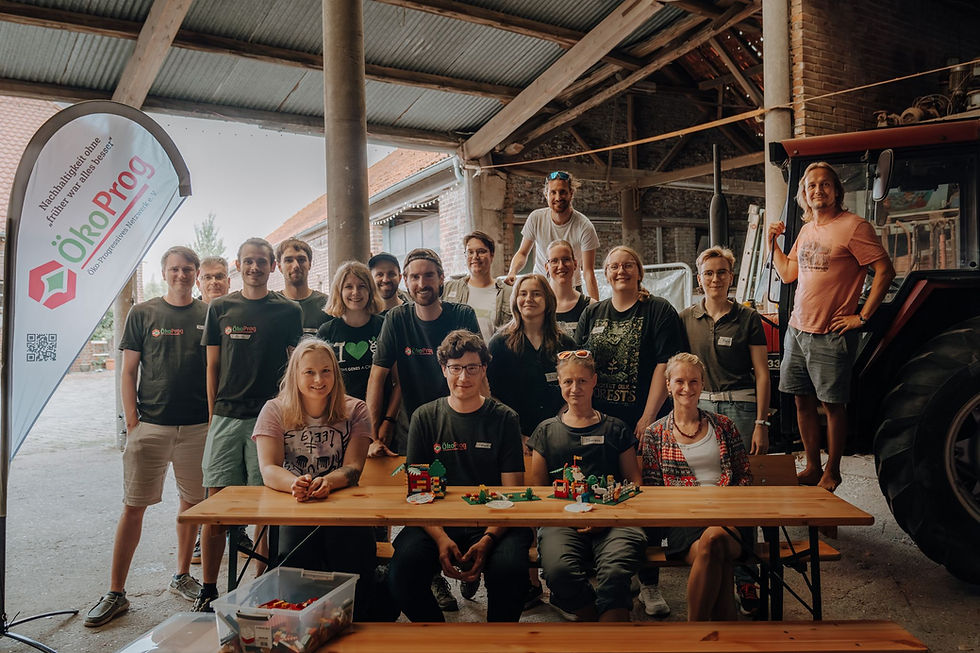Congress of Conservation Biology
- Taskscape Associates
- Jun 24, 2024
- 2 min read
FRAMEwork represented at an important European congress...
The 7th European Congress of Conservation Biology convened in Bologna, Italy from June 17-21, 2024, bringing together over a thousand conservation scientists, practitioners and policymakers from across Europe and beyond. Under the ambitious theme "Biodiversity positive by 2030," the congress aimed to form a platform for addressing the escalating biodiversity crisis and charting actionable pathways toward reversing nature loss within the decade.

Researchers from the H2020 FRAMEwork project at Scuola Superiore Sant'Anna (SSSA) made a significant contribution to the congress through their participation in Symposium Session 130, which focused on sustainable land use in Mediterranean agroforestry systems. The team delivered an oral presentation titled "Scale dependency of biodiversity-friendly land management - a FRAMEWORK case study," which addressed one of the critical challenges in conservation science - understanding how the effectiveness of biodiversity conservation measures varies across different spatial scales.
Their research highlighted important findings from the FRAMEwork project related to land abandonment practices surrounding the project's Italian and Estonian Farmer Clusters. Their talk explored how land management practices that appeared beneficial for biodiversity at the farm level might have different impacts when assessed at landscape or regional scales - and visa versa.
This nuanced understanding proved particularly relevant for Mediterranean agroforestry systems, where the mosaic of agricultural lands, forests, and semi-natural habitats creates complex ecological dynamics. The team's presentation sparked engaging discussions among symposium attendees about the need to design conservation strategies that account for scale-dependent effects, ensuring that biodiversity-friendly practices deliver positive outcomes not just locally but across entire landscapes. Their work exemplifies the kind of applied research needed to bridge the gap between conservation science and practical land management, contributing valuable insights toward achieving the congress's overarching goal of becoming "biodiversity positive by 2030."
The historic city of Bologna provided an inspiring backdrop for five days of intensive discussions, presentations, and collaborative sessions. Delegates gathered at the conference center each morning, energized by the urgency of their shared mission. The opening ceremony set a tone of both concern and determination, with keynote speakers highlighting the stark reality that despite decades of conservation efforts, global biodiversity continued to decline at an alarming rate. However, they also emphasized that the scientific community possessed more tools, knowledge, and momentum than ever before to drive meaningful change.

Throughout the congress, parallel sessions covered a vast array of topics, from innovative restoration techniques and nature-based solutions to the integration of Indigenous knowledge systems in conservation planning. Particularly notable were the sessions focused on transformative approaches to conservation finance, which explored how to mobilize the trillions of dollars needed to achieve biodiversity positive outcomes. Young researchers presented cutting-edge work on environmental DNA monitoring, satellite-based habitat assessment, and community-led conservation initiatives that demonstrated scalable solutions for biodiversity protection.
The congress also featured intense policy discussions, as the European Union's Nature Restoration Law had recently been adopted, and participants debated implementation strategies and monitoring frameworks. Scientists shared case studies from successful rewilding projects across Europe, while practitioners discussed the challenges of balancing human needs with ecological restoration in densely populated landscapes. The evening poster sessions buzzed with energy as researchers shared learnings and networked to form new collaborations that will be vital to achieving meaningful progress within the decade.



